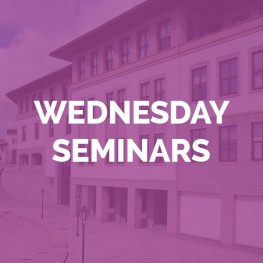Start
March 20, 2019 - 12:00 pm
End
Address
Koc University Rumelifeneri Campus, Faculty of Social Sciences Building, SOS143 View mapMiReKoc Seminar Series of Spring 2019 continues with Salih Tosun’s presentation on “‘They are our brothers but’: The Miscellaneous Xenophobic Attitudes towards Syrian Refugees in Turkey”. The presentation and discussion will take place on Wednesday, March 20th, 2019, at 12:00, in SOS143. Registration is required for participants not affiliated with Koç University.sa
Title:
‘They are our brothers but’: The Miscellaneous Xenophobic Attitudes towards Syrian Refugees in Turkey
Abstract:
This paper aims to present different type of xenophobic attitudes for the case of Turkey departing from the Western example. For the case of Syrians, the state and society send controversial and highly opponent signals of xenophobia, tolerance, welcoming and exclusionary attitudes including stigmatizing discourses against the Syrians. Since the beginning of the conflict in Syria, Turkey has followed an open-border policy by extending protection to Syrians, including their access to basic needs with cases granting citizenships to few. On the one hand, the case of Syrians displays scenes of hospitality and cooperation at both state and societal level; on the other hand, it is filled with distrust, discrimination and concealed xenophobic attitudes at societal level, and bureaucratic statements pushing for the repatriation aspect. This paper will try to reveal out the typologies of xenophobia in this unique simultaneous manifestation of discriminatory and tolerant attitudes in a society currently hosting the highest number of refugees in the world. In light of the preliminary research, the paper contends for exceptional but differential xenophobic attitudes and centers its explanation on three layers: ideational/cultural aspect at societal; ambiguous/strategic political agenda at state level; and the classical economic explanations at both levels. Methodologically speaking, the study adopts qualitative analysis of the data attained from in-depth interviews with Syrian refugees based on their experience in the local communities, which again reflects mixed signal of hatred and tolerance in a conjunctive space. In order to have a complementary analysis, the study will benefit from the available data on public opinion surveys focusing on polarization and perception. For the state-level analysis, statements by the bureaucrats and related inclusionary-exclusionary policies will be analysed and compared.
Short-bio:
Salih Tosun received his BA in Political Science and International Relations from Bogazici University (2017). He is a second-year master student in the department of International Relations and research assistant at Migration Research Center at Koç University (MiReKoc). He had internships at Bahcesehir University Center of Migration and Urban Studies (BAUMUS) and Bilgi University Centre for Migration Research, where he worked in projects forced displacement and integration in Turkey. He has also worked at international projects and volunteered at non-governmental organizations in China, Sweden, and Kenya. His research interests are state responses to mass-refugee inflows, public attitudes towards refugees, xenophobia and civil society organizations. His latest article on the role civil society organizations in refugee integration in Turkey has been published in the Journal of Refugee Studies.


